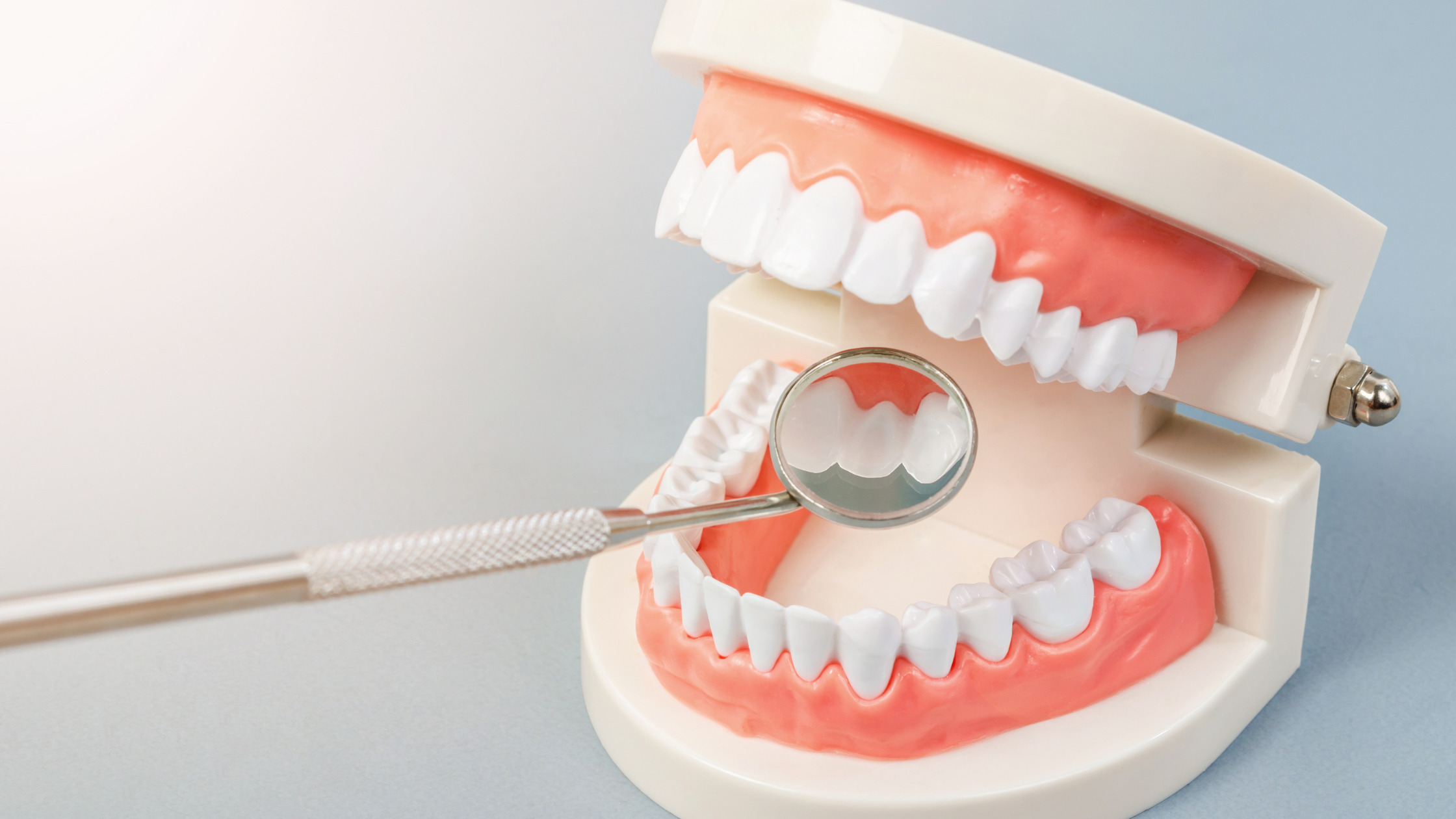For those looking to improve their overall wellness, including physical, mental, and general quality of life, it is crucial to maintain good oral hygiene. Many people are surprised by just how wide-reaching your oral hygiene is, not only in your physical well-being but also in your mental health and relationships with others.
The simple fact is that many things are influenced by our oral appearance, including how we view ourselves, how others view up, and the opportunities available to us, including employment. Because of this, oral hygiene can have a tremendous impact on our general well-being and quality of life.
Additionally, though, oral hygiene can also impact our physical well-being. Sometimes it provides an early indicator of disease, while in other cases, the state of our oral health can contribute to diseases affecting the whole body.
The Connection Between Oral Health and Overall Health
According to Healthy People 2020, oral health is one of the ten leading health indicators, alongside other indicators such as cancer, nutrition, HIV, heart disease, and access to health. By placing oral health within the same category as these other factors, some of which are life-limiting, it’s clear that oral hygiene plays a significant role in our health.
This is because oral health is essential for completing the tasks required for us, as humans, to perform necessary functions such as eating, speaking, smiling, and smelling. When oral health declines, these tasks can become more challenging, which can have consequences in all areas of life, such as relationships, communication, and financial prosperity.
The mouth also offers a preview of the health of the body, showing any nutritional deficiencies or general infection. For example, conditions that affect the entire body, such as diabetes or AIDS, can often first appear as mouth lesions or other types of oral problems.
Another possible connection between oral health and overall health is that conditions such as diabetes, HIV, and blood cell disorders lower the body’s immunity, making periodontal diseases more severe because the body has a lower resistance to infection. This provides yet another basis for oral health as an indicator of overall health.
Additionally, the mouth is full of countless bacteria, some of which are linked to tooth decay and gum disease. There have been connections found between periodontitis (an advanced form of gum disease) and health problems such as:
- stroke
- cardiovascular disease
- rheumatoid arthritis
- bacterial pneumonia
While more research is needed before the relationship can be confirmed, scientists suspect that this connection exists because the bacteria and inflammation linked to periodontitis also play a role in certain systemic diseases and conditions.
Based on these theories, oral health and overall health are very closely related. Diseases affecting the entire body can first present as declines in oral health, or poor oral health can cause other diseases to develop.
Conditions Linked to Poor Oral Health
In addition to the impact of poor oral health on our ability to communicate with others, it can also result in some painful, disabling, and expensive health conditions.
Alzheimer’s
There is increasing research finding a connection between Alzheimer’s and oral health. Alzheimer’s disease is a progressive disorder affecting cognitive function, and it often has symptoms such as memory loss, poor judgment, repeating questions, and taking longer to complete daily tasks.
Alzheimer’s, especially what causes it, is still largely misunderstood. However, some knowledge exists regarding the connection between Alzheimer’s progression and the continued deterioration of the cells and connections in the brain, which poor oral health can cause. In fact, a large 2020 study found that older adults with signs of gum diseases were more likely to develop Alzheimer’s.
Cardiovascular Problems
Several studies have linked the chronic inflammation that occurs due to periodontitis with the development of cardiovascular problems, with studies finding that improved oral hygiene reduces the risk of future cardiovascular events. Additionally, some of the bacteria in the mouth may also be linked to heart disease, stroke, and arterial blockages because of the inflammation and damage they can cause when they travel throughout the body.
How To Be Proactive with Your Oral Health
Because of how important oral health is for all aspects of our well-being, it is clear that taking proactive steps toward preserving oral health should be a high priority for everyone. Two of the more significant determinants of our oral health, diet and hygiene, are also the most controllable so long as you implement the proper habits. This is great news because it means that everyone can make a conscious effort to prevent poor oral health.
Brush Your Teeth
Brushing your teeth helps to remove sugars from the foods you eat that sit on the surface of your teeth. Some of the bacteria in our mouth use this sugar as a food source, producing acid as a by-product. This acid can then eat away at your tooth enamel if left to sit, so be sure to brush thoroughly twice a day.
Eat a Balanced Diet
Eating too much sugar provides extra food for the bacteria in your mouth, which can increase the amount of tooth-damaging acid they produce. To limit the amount of acid produced and thus the amount of damage to your teeth and gums, try to focus on eating a balanced diet with limited added sugar.
Schedule Regular Checkups
You can do everything right when it comes to your oral health, but sometimes genetics is not on your side, putting you at greater risk of periodontal disease. To ensure proper oral hygiene, schedule regular checkups. This allows dentists to clean away tartar from your teeth and gums, which traps bacteria along the gum line.
Final Remarks
Oral hygiene plays an essential role in our overall well-being. Not only does it impact the way we present ourselves to others, and thus our relationships and interactions, but it can also play a role in our physical health.
Many health conditions have been linked to poor oral hygiene and periodontitis, including diabetes, cardiovascular disease, stroke, rheumatoid arthritis, and Alzheimer’s. While research is still investigating these connections, focusing on promoting good oral health can help to ensure your best possible health.
Preventing poor oral hygiene involves proper hygiene and consuming a diet low in added sugar. Additionally, it is essential to schedule regular checkups with a dentist. Taking these steps can ensure optimal oral hygiene, which will then reflect in all areas of your life.
References
- Leading Health Indicators | Healthy People 2020. (2022). Retrieved 27 May 2022, from https://www.healthypeople.gov/2020/Leading-Health-Indicators
- Institute of Medicine (US) Board on Health Care Services. The U.S. Oral Health Workforce in the Coming Decade: Workshop Summary. Washington (DC): National Academies Press (US); 2009. 2, The Connection Between Oral Health and Overall Health and Well-Being. Available from: https://www.ncbi.nlm.nih.gov/books/NBK219661/
- Beydoun, M., Beydoun, H., Hossain, S., El-Hajj, Z., Weiss, J., & Zonderman, A. (2020). Clinical and Bacterial Markers of Periodontitis and Their Association with Incident All-Cause and Alzheimer’s Disease Dementia in a Large National Survey. Journal Of Alzheimer’s Disease, 75(1), 157-172. doi: 10.3233/jad-200064
- Kriauciunas, A., Gleiznys, A., Gleiznys, D., & Janužis, G. (2019). The Influence of Porphyromonas Gingivalis Bacterium Causing Periodontal Disease on the Pathogenesis of Rheumatoid Arthritis: Systematic Review of Literature. Cureus. doi: 10.7759/cureus.4775
- Batty, G., Jung, K., Mok, Y., Lee, S., Back, J., Lee, S., & Jee, S. (2018). Oral health and later coronary heart disease: Cohort study of one million people. European Journal Of Preventive Cardiology, 25(6), 598-605. doi: 10.1177/2047487318759112
- Park, S., Kim, S., Kang, S., Yoon, C., Lee, H., & Yun, P. et al. (2018). Improved oral hygiene care attenuates the cardiovascular risk of oral health disease: a population-based study from Korea. European Heart Journal, 40(14), 1138-1145. doi: 10.1093/eurheartj/ehy836
- Gum disease and the connection to heart disease – Harvard Health. (2018). Retrieved 27 May 2022, from https://www.health.harvard.edu/diseases-and-conditions/gum-disease-and-the-connection-to-heart-disease
- Healthy mouth, healthy body. (2006). The Journal Of The American Dental Association, 137(4), 563. doi: 10.14219/jada.archive.2006.0230
Disclaimer: This information is being provided to you for educational and informational purposes only. It is being provided to educate you about how to take care of your body and as a self-help tool for your own use so that you can reach your own health goals. It is not intended to treat or cure any specific illness and is not to replace the guidance provided by your own medical practitioner. This information is to be used at your own risk based on your own judgment. If you suspect you have a medical problem, we urge you to take appropriate action by seeking medical attention.









































